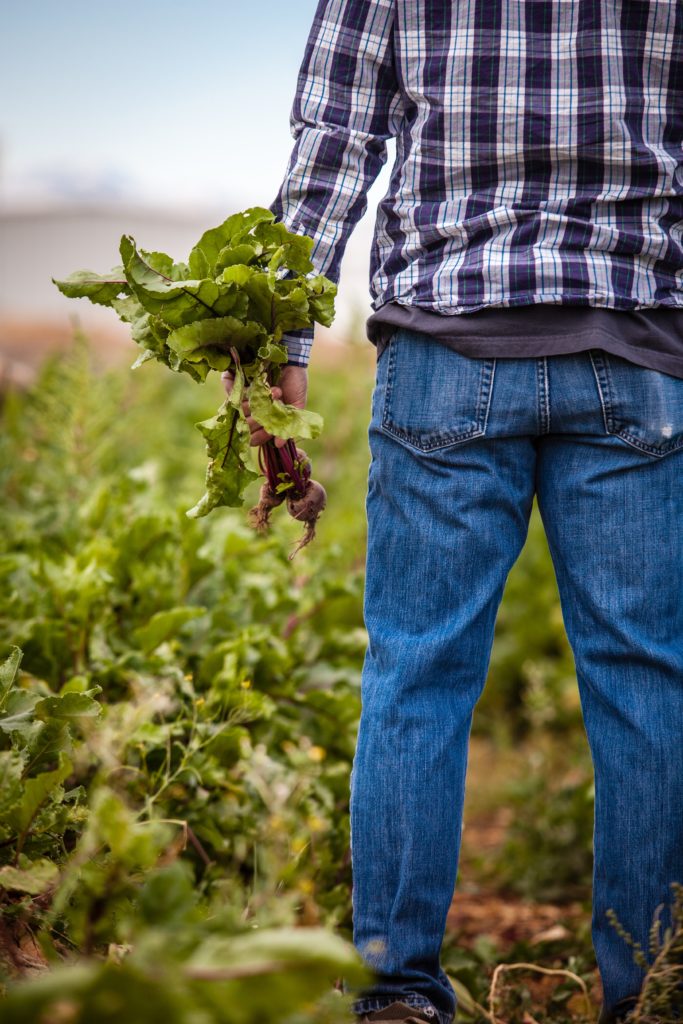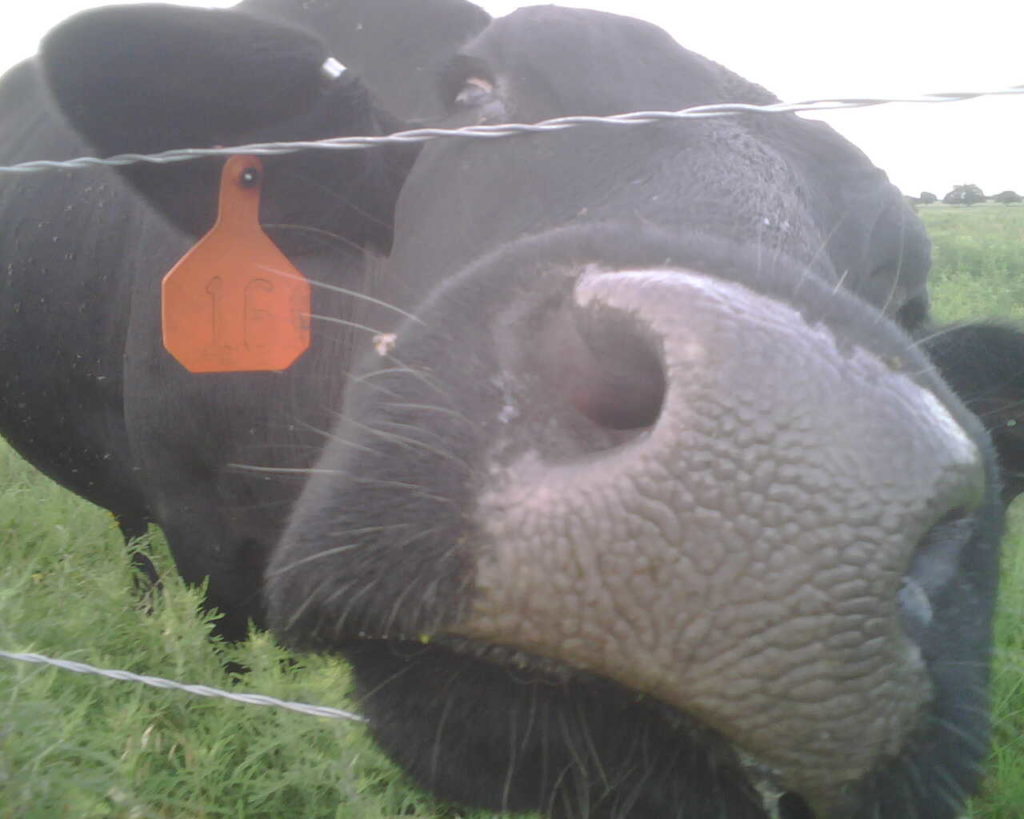Farmers! Well, I intended to write about music historiography this week. The subject is on my mind as I prepare for talks at the early March National Classical Education Symposium in Phoenix. Keeping things as lively as possible, I will attempt to lay out the history of music history, particularly how we formulated our historical Western musical canon (the repertoire we tend to call “classical music”).
 But let me hold historiography off today, because my heart has been captured instead by the reemergence of a tribute created by legendary sage Paul Harvey. Harvey hailed from Tulsa and died in Phoenix in 2009 at age 90. His biography, to say the least, is colorful. For more than fifty years he regaled radio audiences with wisdom, humor, and his mellifluous voice. This particular tribute, “So God Made a Farmer,” has resurfaced as part of the political storms encompassing us all in this election season.
But let me hold historiography off today, because my heart has been captured instead by the reemergence of a tribute created by legendary sage Paul Harvey. Harvey hailed from Tulsa and died in Phoenix in 2009 at age 90. His biography, to say the least, is colorful. For more than fifty years he regaled radio audiences with wisdom, humor, and his mellifluous voice. This particular tribute, “So God Made a Farmer,” has resurfaced as part of the political storms encompassing us all in this election season.
I have no wish to invoke politics, at least not today. What I do wish is to share this narrative with you, whether it be new (or forgotten). And to tell you why it struck me so hard this week.
As the decades go by, our society gets further removed from any connection to food production or animal husbandry. This is news to no one, but it still bears reflection. For far too many people, the information conveyed in this tribute seems more legendary than real.
Except it is real. Utterly real. Not the first bit of exaggeration lies in Harvey’s words. If anything, more intensity could be added to his descriptions. Without the blood, tireless sweat, and restrained tears he describes, we would not have food or many other things.
Raised in a city, and formed by academic institutions, I was helpless when we started our ranching decade in Bowie, Texas. At least I had grown up when people had back-yard gardens and a few old-timers kept chickens. But those memories had faded. For that matter, whatever came out of those gardens in the 1950s and 60s was not our only food. We still had grocery stores.
Then came Bowie, Texas. Yes, we were nuts to buy a small ranch and move two hours out of Dallas, but we did. Those ten years ended up giving me perhaps my greatest education. A significant part of my thinking about daily life and humanity turned around. It became impossible to take a long list of things for granted, as I always had. Consequently, Harvey’s words—once sentimental—now blast me squarely between the eyes.
In Bowie we had more ranchers than farmers, but we came to know people who fulfilled every word of Harvey’s descriptions. My sense of what comprised a “work-day” expanded wildly (he does not joke that the first forty hours often is completed by Tuesday). More importantly, my sense of what a “capable” or “well-versed” person knew or could do changed.

In our own case, with seventy acres, a bunch of goats, seven cows and a borrowed bull (that will be its own essay one day), the learning curve was steep. There were endless barn cats, expensive, glorious livestock dogs, a flow of stray dogs and cats dropped off cruelly by city folk (“Oh, honey, they’ll be just fine out there in the country. Think of all the little creatures they can hunt and eat!”).
And plenty rattlesnakes to shoot or chop up! We learned to do that with aplomb. At least my husband, daughter, and son did (I never stopped squealing in terror). The hardest times, for me, involved hauling fifty-pound feed bags and chopping ice in the troughs on winter mornings. Yes, some troughs had electric heaters, but not all. And, no, I did not sling hundreds of feed bags in a given day. Just five or ten.
But surrounding me were people who daily packed and hauled truckloads of cattle cubes and feed. People who tossed square bales of hay up in barns the way I stock up bags of chips for a party. People who rose so early and retired so late, I couldn’t figure out when they slept. If they slept.
I write “if they slept” because a whole bunch of them spent weeks between late January and April awake all night, worriedly tending newborn kids, calves, and foals. They knew full well that frost would get some newborn deep in the pastures, coyotes would get others, and still others would die from complications at birth that no one could do anything about. And when that happened, they held back tears as they put their hope in next season.
The images Harvey paints with his words are no longer theoretical or metaphorical for me. And the tragedy is that they had to be made real by personal experience.
So tell me: how is it we care so little about what feeds and clothes us? Our experiences in Bowie were mere snapshots of what people endure and accomplish, not just throughout their lives, but throughout generations. Hank and I, as “hobby ranchers,” were not dependent upon what happened in the fields and barns. Farmers and ranchers are.
Yet these are the very people who, in elite circles (particularly academia), are far too often sniffed at or disdained. Oh, how I would love to see certain people from the academic world, dropped into a freezing barn at two a.m. and told to figure out what to do about a breech birth of goat triplets. Or to find and chop up a rattlesnake in their pantry closet. How would the technological elite go about raising $26,000 on a Saturday afternoon to buy their rural town a new ambulance with nothing more than a handful of 12-year olds shooting skeet and a table piled with cakes for auction? Could they do it?
Yet this is how much of America lives. And survives. And even prospers. These are the people who feed and clothe us. Rubbing shoulders with this kind of greatness not only blesses us, but is sorely needed.
So forget the political brouhaha. I’m glad this clip is making its rounds again. With today’s technology, it will circulate more widely and intensely than it ever did over the radio waves in Harvey’s time. May it be so.
Share it with your kids. Let it be fodder for conversation from “Yes, Marisa, this is how we get our food” to adult discussion about why we stopped valuing what those folks producing our food must do every single day.
If you want to add an academic or artistic edge to the topic, you can trace how a romanticized view of nature took root in the late 18th century and began to replace real and common knowledge of tilling the soil and fattening the calf with idealized and sentimental images and words.
One more thing: there are different versions of Harvey’s tribute making the cyber-rounds. Some are abbreviated down to 60 seconds. But I do like what I believe is the full statement here.
Let me know your thoughts.




Right on!
Wonderfully moving story. Thanks for including the Paul Harvey clip!